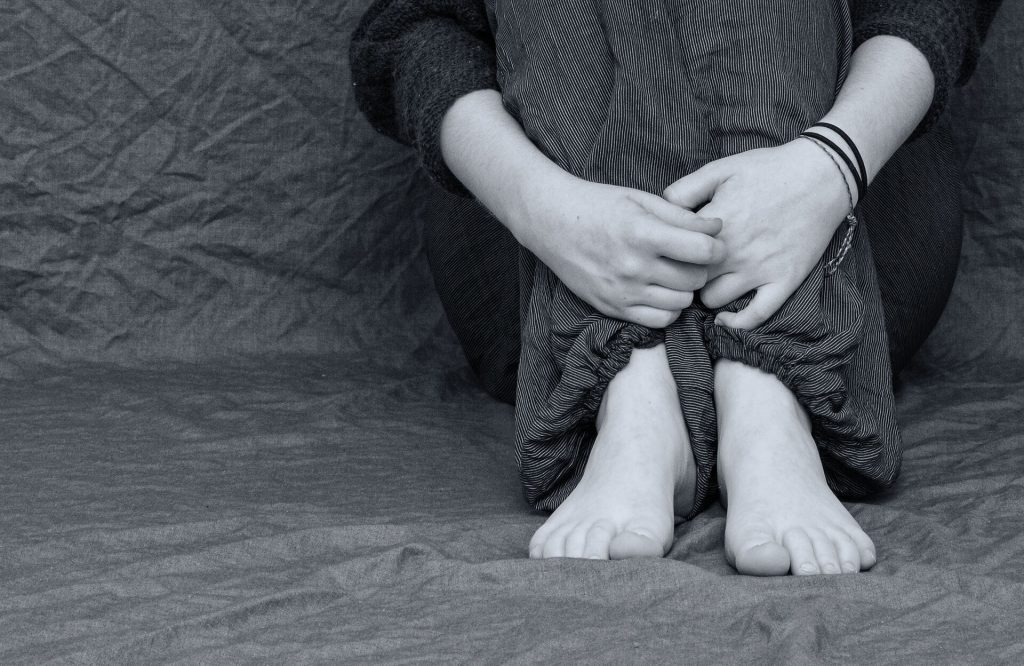Introduction
In Part 1 of History of Buddhism, a discourse was introduced to lay devotees called Advice to Sigālaka1. This discourse contains all the necessary advice to lay devotees on how to live one’s life. In fact, if a lay devotee practices all that is stated in the discourse, the level of morality will be higher than another lay devotee who only follows the 5 precepts. This is because this discourse covers not only personal morality, it also teaches how to interact with the people around you, including your parents, family and colleagues. Hence, Refuge In Dhamma deems this discourse as the most important one for lay devotees.
For this series, it is very important to read in sequence for easy understanding and not to skip any article as they are closely linked to one another.
In Part 1 of the discussion of this discourse, we will be discussing about personal character development, specifically morality.
Backstory

One morning, near Rājagaha, a person called Sigālaka was revering the 6 directions: east, south, west, north, below, and above. The Buddha was staying in the Bamboo Grove at that time and when he went for his alms round, he saw this person and asked him the reason for doing this ceremony. Sigālaka told the Buddha that he was following his father’s instructions before he passed away. Then, the Buddha proceeded to teach him the correct way to revere the 6 directions.
Morality
Giving up the 4 corrupt deeds
The first set of morality rules the Buddha taught Sigālaka was to give up killing living things, stealing, engaging in sexual misconduct and lying. These are the same as the five precepts commonly given to lay devotees as a practice to increase morality. The last precept of not taking intoxicants will be discussed in Part 2 of this series. We will be discussing below how to give up the 4 corrupt deeds.
Killing living things

The best way to avoid killing living things is prevention. The most common scenario for the majority of people is trying to get rid of pests that have infested the house. To prevent pests from infesting your house, keep the place as clean as possible and do not leave any food, unwashed dishes and rubbish unattended to. It is every animal’s survival instinct to hunt for food so if there are food lying around in your house, you can expect pests to start infesting the place and you will have a very difficult time getting rid of them once they have built a nest.
Another often overlooked area is soil. Many people like to have greenery in their homes so they start having plants in and around their houses. When you have plants, it’s unavoidable to have soil and soil is the natural habitat for insects like ants. Furthermore, spiders also love plants as they can spin their webs in between the leaves to trap insects. Therefore, there is a need to strike a balance between greenery to liven up your home versus planting just for planting’s sake. For example, having a long and deep plant box is just inviting ants, spiders and other insects to make permanent residence there. Instead of having just 1 long and deep plant box, consider having small plant boxes and pots at differing levels and distances to make the place more aesthetically pleasing. Sometimes, less is more.

Last but not least is food. Seafood is the favourite food for many people and it is best to eat them fresh. Therefore, many seafood restaurants have aquariums on display for their customers to choose the seafood they want. By doing so, they are committing this corrupt deed directly because they have chosen those living beings to be killed and be made as food for them. To give up on this corrupt deed, consider eating frozen seafood instead. So long as you do not intentionally and directly result in the death of a living being, you can continue to eat meat and seafood. When you buy frozen meat or fresh meat available in the market, those animals are already dead regardless whether you buy or not. Therefore, you are not committing any corrupt deed.
Stealing

Even though many people will not steal things blatantly, however, there are many scenarios where a person commits stealing without being aware of it. One such instance is using work resources for personal or family use. Work resources can be physical items or something intangible like time. Examples will include using work hours to surf the web and browse social media not related to work, taking office stationery home, settle personal matters during work time, etc. These actions may seem insignificant to the person committing them, they will, however, reflect badly on the offender once discovered.
In America, there is a rising trend of ‘Porch pirates’ whereby people steal parcels that are placed outside the house at the porch because the owners are not home when the parcel was delivered. These thieves do not even know what is inside the parcels and yet they resort to stealing the parcels in hopes of getting a good loot.
Another type of stealing that is on the rise is identity theft. There are many ways for identity thieves to obtain personal information2 and a couple of ways are rummaging through rubbish and retrieving data from improperly sanitised data storage media that are disposed. After obtaining personal information, the thieves can use these information to commit a number of identity thefts and the most common is financial identity theft. The thieves will claim to be the person whose information was stolen, then use the identity to obtain loans, goods and services.
There are a number of indicators that your identity has been stolen, like expenditures in your card bills not belonging to you. When you encounter such incidents, it is best to inform the relevant company to stop the service and make a police report.
Sexual misconduct

Sexual misconduct in the 21st century is vastly different from during the Buddha’s time. In 6th century B.C., men can marry multiple wives and premarital sex is a big taboo. There was also no law against marital rape and women raping men. However, in the 21st century A.D., almost all modern societies espouse monogamy and premarital sex is prevalent. People are also more aware that any type of rape, whether committed by males or females, can be mentally and physically detrimental to the victims. Therefore, as a general guideline, sexual misconduct means not committing any sexual acts against the law and not getting involved in extramarital sex.
Lying

Of the 4 corrupt deeds, this one would be the most difficult to give up as there are many reasons for people to lie. It can be to get out of a difficult situation, to cover up one’s errors, to blame others, etc. However, in the Advice to Rāhula at Mango Stone Discourse3, the Buddha taught his son, Rāhula, that if a person were to tell lies, this person would be capable of any evil. So, Rāhula trained not to tell lies even as a joke.
In this book called ‘Dopamine Nation’4, the author Anna Lembke had a chapter devoted to telling truths. In this chapter, she gave a case study of an undergraduate caught for drunk driving. His lawyer told him to plead not guilty in court and everything else will be settled for him. However, on the day of court hearing, this person suddenly remembered that his father taught him to always tell the truth and at the last moment when the Judge asked him whether he was guilty, he pleaded guilty. It gave him a lot of trouble later in life. Every time he changed a new job, he had to answer questions on his offence and when he moved to another state, he had to redo all his probationary lessons on drunk driving. Even though it inconvenienced him a lot, he was glad that he told the truth years ago. During his undergraduate days, he was drinking and driving a lot so he was on the way to becoming an alcoholic and could have died or be crippled in a car accident. Telling the truth in court served as a wake-up call for him to stop his bad habits and prevented those bad events from happening to him.
Therefore, telling lies may be convenient at that moment but it may ruin the future due to this lie.
Verse for 4 corrupt deeds
Taking life and stealing, lying,
Adultery, the wise reprove.
4 causes of corrupt deeds
For every action there will always be an intention behind it, be it good or bad. Therefore, it is important to recognise the cause of your actions so that you know how to be a better person from the root instead of superficially.
Desire

When the Buddha taught about desires to lay devotees, he did not mean for them to totally get rid of desires like monastics. The real intention is for lay devotees to be aware of their desires as they arise and to curb arisen desires so that they do not become slaves to these urges. Being addicted to any substance or activity is never healthy and that is why the Buddha discourages over-reliance on external factors to satisfy desires.
For example, a person who eats sweet food all the time can develop diabetes, while another person who is a shopaholic can buy so many things that the credit card debt causes bankruptcy. Even though these instances are disastrous personally, they can also affect family as they need to help the person bear part of the financial burden and a lot of emotional burden.
On a higher level of greed and desire, there are people who sell drugs, scam others and use illegal schemes to get rich. These people explicitly harm others to benefit oneself. Since the start of the Covid pandemic in 2020, there is a rise in the trend of scammers using various methods to cheat people. Governments all over the world not only have to deal with the pandemic, they also have to raise awareness of their citizens to avoid being scammed. This is as important as the prevention of the spread of the pandemic because being scammed means losing money and in times such as this where work is scarce and income is restricted, losing one’s life savings can be extremely detrimental to the person and the family.
Scamming is just the tip of the iceberg in terms of what people are capable of when they are overwhelmed by desires. They can create wars, cause economic depressions, enslave people, etc. There are countless examples to prove that the Buddha was right when he said that desires can make a person capable of committing any corrupt deed.
* This section is not a necessary read but if you are interested to avoid getting scammed, you can continue.
Ever since the start of the Covid pandemic, scams have been on the rise. The means and ways of scamming are so varied that it is difficult to know for sure whether a person is facing a scam situation or not. There are a few ways to combat scams: Update yourself on new scam tactics through the news, banking apps or relevant government authority, ignore unknown phone numbers (especially phone numbers with international codes) and ask your family and friends for help if necessary. Do not give up your money easily to strangers even if they claim to be from banks or government departments.

For Singaporeans, the government has set up a website called ‘Scam Alert’5 to notify citizens of new scam tactics and to let you check whether the situation you are currently facing is a scam. For people who do not know how to use the link, you can call 1800-722-6688 for help. They are available from Mondays to Fridays, 9am to 5pm, excluding Public Holidays.
Ill-will

It is inevitable that people will get angry when they are stressed and things just do not go their way. However, there can be a difference in how people vent their anger and frustrations. Some people will lash out at everyone around them while others will bury it deep within themselves. These are not optimal ways to relieve the stress and anger within.
Exercise and meditation can both help people manage their ill-will more easily. Research6 has shown that exercise can help to reduce anger levels and prevent anger moods from arising easily. However, it does not stop anger emotions from arising nor does it reduce the intensity. The difference between moods and emotions is that the former is longer lasting and has weaker association with immediate triggers while the latter has a strong association with immediate triggers and occurs in short bursts.
Meditation, on the other hand, can help with both anger emotions and moods. Research7 has shown that people new to meditation just require 20 minutes of meditation to immediately reduce anger emotions. Constant and long-term meditation are so effective with anger moods that seasoned practitioners can experience negative moods and emotions without reactions to them.
This goes to show that in order to effect a behavioural change, actions like exercise and meditation are required, not just intellectual understanding of theories.
Delusion

People are constantly trying to find means and ways to make their lives better in all aspects. Some believe that money can make their lives more fulfilling, while others believe in spirituality. The fact is that anyone staying in this universe, be it humans, animals, spirits or deities, there will be no satisfactory means to gain happiness. All that you experience will be fleeting as all constructs will be broken down over time, in other words, all constructs are impermanent. However, due to not recognising this fact, the entire Earth’s population is still pursing the illusive permanent happiness in this universe. This is why the Buddha said that the only way to gain enlightenment is to experience this fact for yourself through meditation and let go of all attachments.
Even though there is no way to achieve permanent happiness in this universe, you do not simply give up on everything in life. Instead, you should live your life to the fullest according to the instructions given in this discourse. Try to take small steps to improve your knowledge and practice of the Buddha’s teachings and you will definitely reach the ultimate goal of Enlightenment one day.
Fear

Fear can cause people to act irrationally when not curbed. The best instance of mass panic was at the start of the Covid pandemic. People were rushing to buy daily necessities, especially toilet paper, when they heard the governments announcing lockdowns. The situation got so bad that fights broke out and toilet paper were even stolen8.
In Refuge In Dhamma, our meditation courses teach participants how to curb fear using the method taught by the Buddha. Only when the fear in our hearts is curbed can we have the mental clarity to handle difficult situations properly and coming out of it with minimal damage.
Verse for 4 causes of corrupt deeds
Desire, ill-will, delusion, or fear:
Whoever transgresses the Dhamma by these,
Has a reputation that comes to ruin,
Like the moon in the waning fortnight.
Desire, ill-will, delusion, or fear:
Whoever does not transgress the Dhamma by these
Has a reputation that comes to fullness,
Like the moon in the waxing fortnight.
References
- Advice to Sigālaka
- Identity theft
- Advice to Rāhula at Mango Stone
- Dopamine Nation (Anna Lembke)
- Scam Alert
- There’s a Complex Connection Between Exercise and Anger
- New Study Shows Brief Meditation Can Reduce Anger
- Getting Tasered, Stealing & Other Crazy Things People Are Doing For Toilet Paper Around The World
